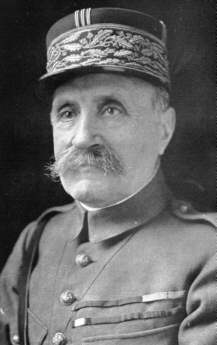Franco-Belgian Accord Of 1920 on:
[Wikipedia]
[Google]
[Amazon]
The Franco-Belgian Military Accord of 1920 () was a
 The pact was negotiated in April 1920 and signed on 7 September.
The pact was negotiated in April 1920 and signed on 7 September.
collective defense
Collective security is treaty, arrangement between states in which the institution accepts that an attack on one state is the concern of all and merits a collective response to threats by all. Collective security was a key principle underpinning ...
pact signed between France
France, officially the French Republic, is a country located primarily in Western Europe. Overseas France, Its overseas regions and territories include French Guiana in South America, Saint Pierre and Miquelon in the Atlantic Ocean#North Atlan ...
and Belgium
Belgium, officially the Kingdom of Belgium, is a country in Northwestern Europe. Situated in a coastal lowland region known as the Low Countries, it is bordered by the Netherlands to the north, Germany to the east, Luxembourg to the southeas ...
in September 1920. The Accord was cancelled in 1936 as Belgium returned to pursuing a policy of neutrality, which it would continue until being invaded by Germany early in the Second World War
World War II or the Second World War (1 September 1939 – 2 September 1945) was a World war, global conflict between two coalitions: the Allies of World War II, Allies and the Axis powers. World War II by country, Nearly all of the wo ...
.
Background
After experiencing a German invasion in theFirst World War
World War I or the First World War (28 July 1914 – 11 November 1918), also known as the Great War, was a World war, global conflict between two coalitions: the Allies of World War I, Allies (or Entente) and the Central Powers. Fighting to ...
, the Belgian government was anxious to secure a defensive treaty against a possible resurgent Germany in the future. However, the government were anxious that Belgium should not become a mere protectorate of France and was reluctant to risk being dragged into a war by an ally attempting to enforce terms of the 1919 Treaty of Versailles
The Treaty of Versailles was a peace treaty signed on 28 June 1919. As the most important treaty of World War I, it ended the state of war between Germany and most of the Allies of World War I, Allied Powers. It was signed in the Palace ...
. On the other hand, the French wanted Belgian involvement in the League of Nations
The League of Nations (LN or LoN; , SdN) was the first worldwide intergovernmental organisation whose principal mission was to maintain world peace. It was founded on 10 January 1920 by the Paris Peace Conference (1919–1920), Paris Peace ...
' 15-year occupation of the Rhineland
The Rhineland ( ; ; ; ) is a loosely defined area of Western Germany along the Rhine, chiefly Middle Rhine, its middle section. It is the main industrial heartland of Germany because of its many factories, and it has historic ties to the Holy ...
and were keen to gain Belgian military support in event of war.
Agreement
 The pact was negotiated in April 1920 and signed on 7 September.
The pact was negotiated in April 1920 and signed on 7 September. Ferdinand Foch
Ferdinand Foch ( , ; 2 October 1851 – 20 March 1929) was a French general, Marshal of France and a member of the Académie Française and French Academy of Sciences, Académie des Sciences. He distinguished himself as Supreme Allied Commander ...
was the chief negotiator for the French, though he failed to gain a union of French and Belgian armies and agreements over mobilization which he sought. Though British participation was requested, it was rejected by the government.
Terms
The first article outlined an agreement including both French and Belgian soldiers in the occupation of the Rhineland. It also stated, that in the event of German rearmament, both countries would mobilise their reserves. The second article discussed greater integration of frontier defenses, while the third article announced greater co-operation betweenGeneral Staff
A military staff or general staff (also referred to as army staff, navy staff, or air staff within the individual services) is a group of officers, Enlisted rank, enlisted, and civilian staff who serve the commanding officer, commander of a ...
s.
End of the treaty
The treaty was formally abrogated in 1936 and Belgium returned to pursuing a policy of neutrality. The Belgian government preferred to construct fortifications, and gain assurances of neutrality from surrounding countries, includingNazi Germany
Nazi Germany, officially known as the German Reich and later the Greater German Reich, was the German Reich, German state between 1933 and 1945, when Adolf Hitler and the Nazi Party controlled the country, transforming it into a Totalit ...
, than risk getting entangled in another war through an alliance structure.
Perception
The agreement was initially met with general approval in Belgium. However support for the pact was split down regional lines with the Walloon population favoring closer military ties with France unlike the Flemish population which was opposed what they perceived as rising French influence in the country. Most modern historians regard the treaty, together with other French military alliances of the period, as failures, because they failed to create a strong alliance network that was capable of preventing the projection of German power in the late 1930s.References
Further reading
* * * *{{cite book , last1=D'Hoop , first1=Jean-Marie , title=Mélanges Pierre Renouvin. Études d'histoire des relations internationals , date=1966 , publisher=Paris , location=Presses universitaires de France , pages=191-6 , chapter=Le maréchal Foch et la negociation de l'accord militaire franco-belge de 1920 Belgium–France relations Treaties concluded in 1920 Treaties concluded in 1936 Treaties of the French Third Republic Treaties of Belgium 1920 in Belgium 1920 in France Belgian neutrality in World War II Interwar-period treaties